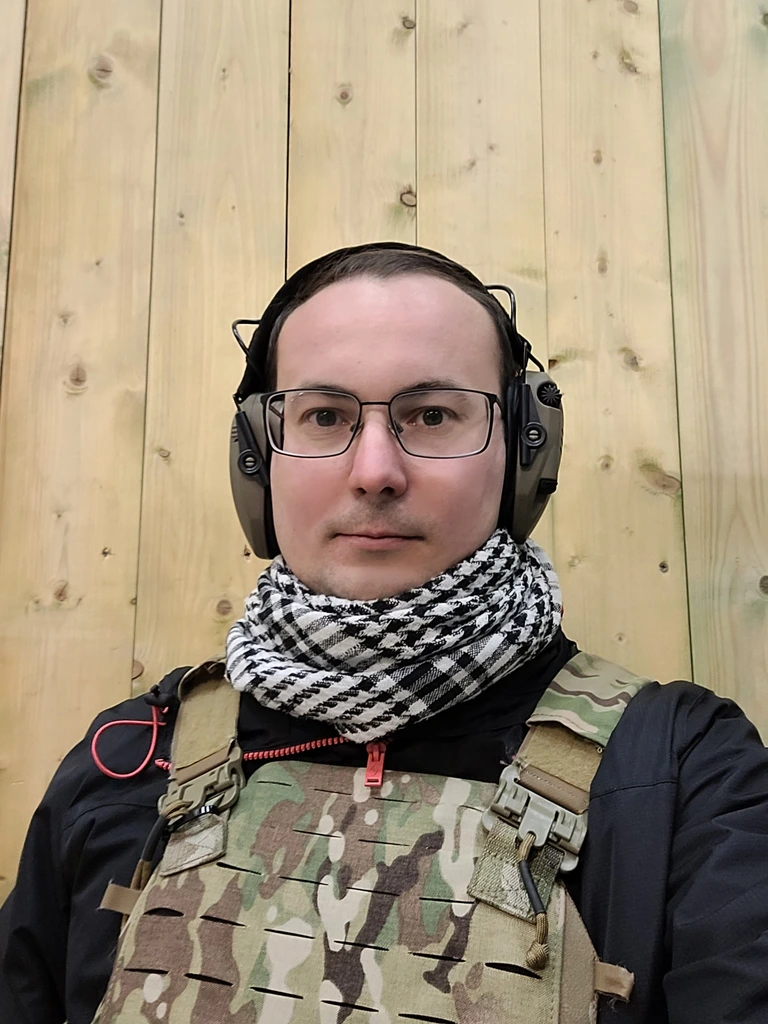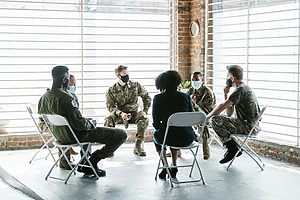“Using the knowledge, I was able to create well-organised glossaries on various military topics. I shared these glossaries with my colleagues, who found them highly useful while preparing for their work,” says Artemii.
Intercultural communication competence is crucial
It is often said that translation and interpreting require different skills. While translation focuses on written texts and interpreting on spoken words, Artemii’s experience proved that both disciplines share fundamental principles, especially those related to intercultural communication.
“When people from different countries speak, they represent their culture. Different worldviews can sometimes cause misunderstandings. That’s why an interpreter is not just someone who repeats messages from one language to another, but also a mediator between cultures. My studies also helped me learn how to navigate between different cultural perspectives,” says Artemii.
He says that his training in intercultural communication during the studies was instrumental in handling culture-related communication situations. Recognising cultural nuances and local context helped prevent miscommunication that could otherwise disrupt military cooperation.
Another surprising skill that came in handy was audiovisual translation. In military settings, communication can be non-verbal –whether due to language barriers or the need for discretion.
“At times, due to language barrier, a speaker would explain something vaguely, like “…take this thing and place it next to that thing…”, while using visual materials, objects, or gestures instead. In such mode, interpreting required constant visual contact, careful observation, and quickly transforming visual hints into words,” shares the KTU doctoral student of Education programme.
The human aspect of interpreting
At its core, interpreting is not just about language – it is about people. Understanding the emotions, stress, and urgency behind the words is just as important as the words themselves. Translation studies at KTU also emphasise soft skills, which proved to be just as crucial as linguistic expertise in Artemii’s work. In high-stakes situations, the ability to remain calm, professional, and culturally sensitive made all the difference.
“I found that interpreting in an international military setting was not just about conveying words but about facilitating understanding and ensuring smooth collaboration. This also applies to other translation and interpreting fields”, notes Artemii.
The Head of Study Programmes of Linguistics and Translation and a lecturer at KTU FSSAH Audronė Daubarienė says that the Faculty is proud to have had such a student as Artemii. “Despite his intensive work, Artemii graduated from his Master’s studies with flying colours. His successful professional experience confirms that the study programme of Translation and Post-editing of Technical Texts holds high standards for training translators and interpreters,” says Daubarienė. The programme is recognised by the European Commission quality label European Master’s in Translation, which was awarded to the study programme for the second time.
Starting from September 2025, FSSAH is launching an updated version of the study programme. To meet the need of students to enter the job market faster, the duration of the programme will be 1,5 years instead of two. “Blended mode of studies will allow more flexibility for students to combine studies and work. In addition to specialised translation, translation projects management and AI in translation modules, we introduced more alternative modules of translation, adding legal and medical translation and interpreting,” says Daubarienė.
Dreaming about a career, which would help you make a difference? Choose Kaunas University of Technology. We offer over 50 bachelor’s and master’s degrees in English. Apply by the end of May and start studying in September 2025.



